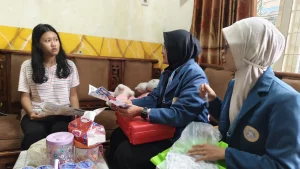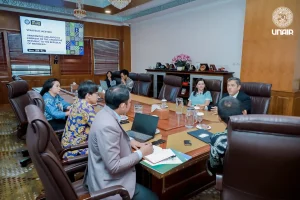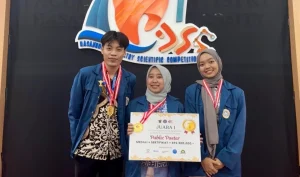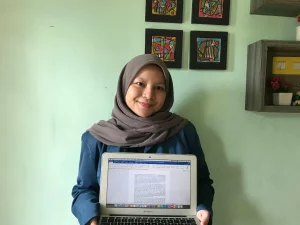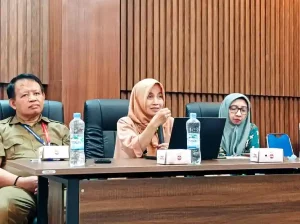UNAIR NEWS – Plastic waste which potentially disrupts the environment in the final waste processing sites (TPA), has been successfully turned into gasoline and diesel by students of Environmental Science and Technology, Faculty of Science and Technology (FST) Universitas Airlangga, for motorcycle and car fuels.
The liquid fuels is made through thermal cracking method, which is a combustion at high 300-400 ° C without oxygen. Burning one kilogram of plastic produces one liter of fuel in the form of gasoline and diesel. This innovation is intended as a contribution to solve the problems of global waste.
The research is conducted by Edo Dwi Praptono (2013), Ade Imas Agusningtyas (2013), Hilmi Putra Pradana (2016), Ledy Theresia (2016), and Lola Sara (2016).
They have written the research as a proposal of Exacta Research Student Creativity Program(PKM-PE) has successfully passed the Dikti assessment and is entitled to the development grant from Kemenristekdikti 2016-2017 PKM. The proposal is titled ” Landfill Mining Project : Plastic Waste Result of Excavation Pyrolysis as Fuel With Thermal Cracking Method to Prolong TPA Management”.
They concern with Indonesia for being the second largest contributor of plastic waste after China. Edo Dwi Praptono and friends are determined to make innovation and contribute to find solution. Indonesia is the second largest contributor of plastic waste because the community use of plastics is rising. The public do not understand that the plastic waste will bring a major impact on environmental degradation, such as water, air, and soil pollution, as the level of degradation of plastic waste to decompose in the soil takes decades.
Furthermore, Edo said that increasing the amount of plastic waste will affect the area used as final waste processing site. TPA Klotok in Kediri, as the location of this research was expanded as it was not enough.
It is indeed very harmful in terms of ecology, so solution is needed. Converting plastic waste into fuel is an alternative of solution considering the current need of fuels is increasing. But it is inversely proportional to the availability of existing fossil fuels.
“So we expect the conversion of plastic waste from TPA excavation into fuel can be an alternative solution,” added Edo.
Explained by Edo, this conversion process is done by thermal cracking method, by burning at high temperature without oxygen. The combustion process is carried out for 45 minutes at temperature of 300-400 ° C. The result of burning one kilogram of plastic produces one liter of fuel in the form of gasoline and diesel.

The types of plastics that can be used are quite abundant, such as PP type plastic (water plastic cups), HDPE (shampoo bottle), PETE (water bottle), other (snack packs), and other plastic waste easily found in the community.
With the utilization of this plastic waste, the sustainability of the conversion process is maintained due to the amount of plastic waste that is very abundant and continues to increase every day. The results of the conversion of plastic waste can be used as motorbikes, cars, and can also be used to drive agricultural tools.
“Converting plastic waste into fuel can be a solution to overcome the high pile of plastic waste in TPA and used as an alternative of fossil fuels. Just imagine if all final waste processing in Indonesia to convert like this, Indonesia will be free from global plastic waste problems, “said Edo Dwi Praptono with an optimistic tone.
Further development, added Ade Imas Agusningtyas, this activity can serve as the base of community service around the TPA area to help manage plastic waste and improve people’s lives by commercializing fuel products from plastic waste. (*)
Editor: Bambang Bes


